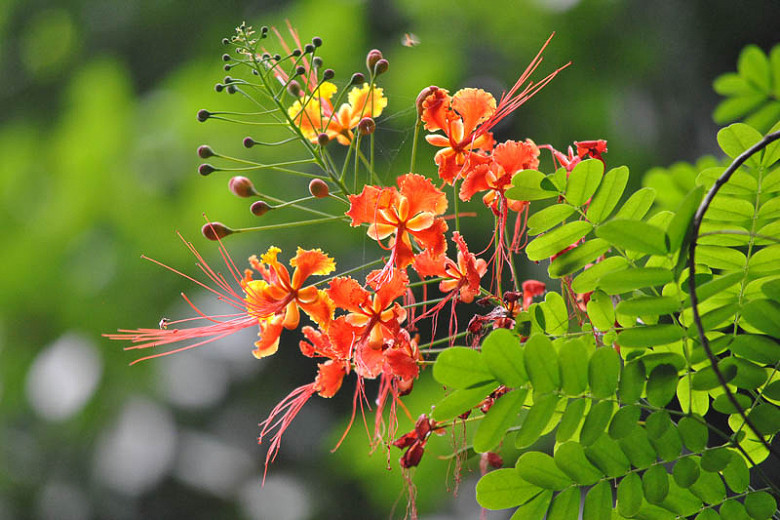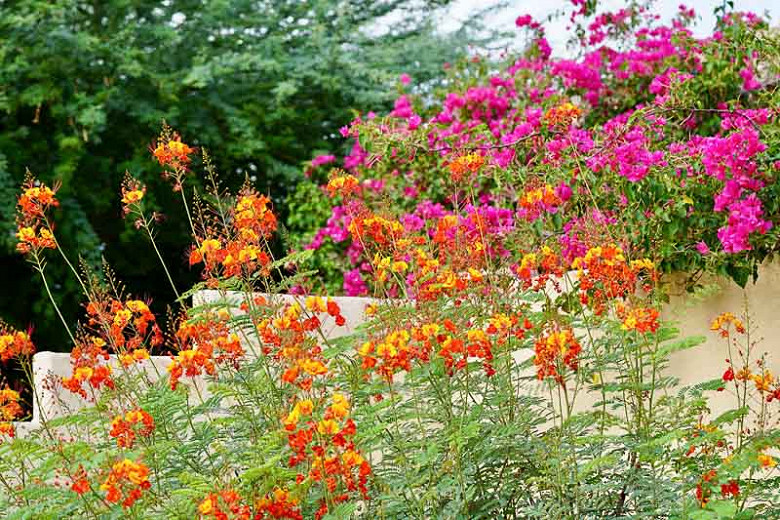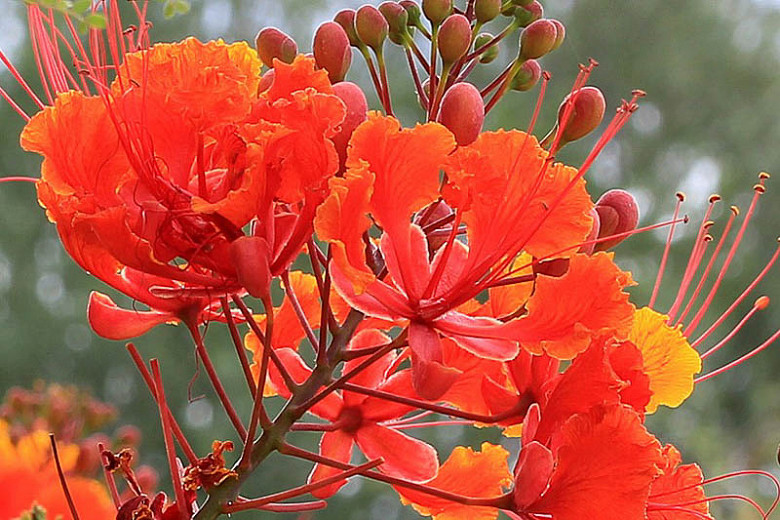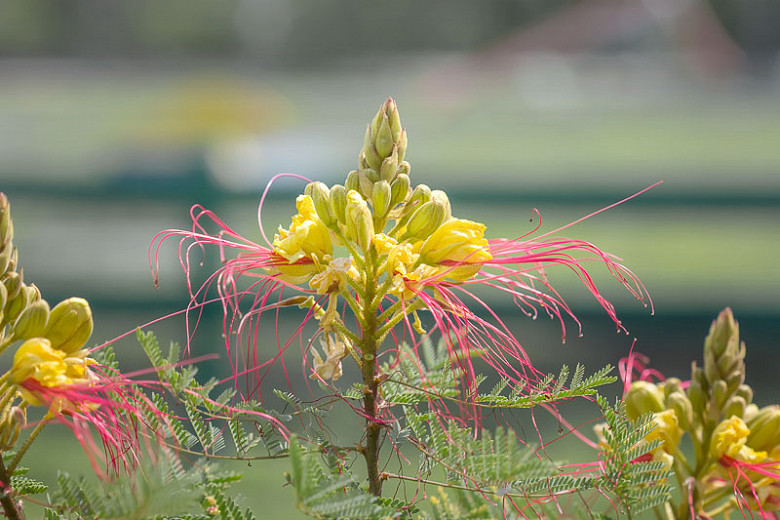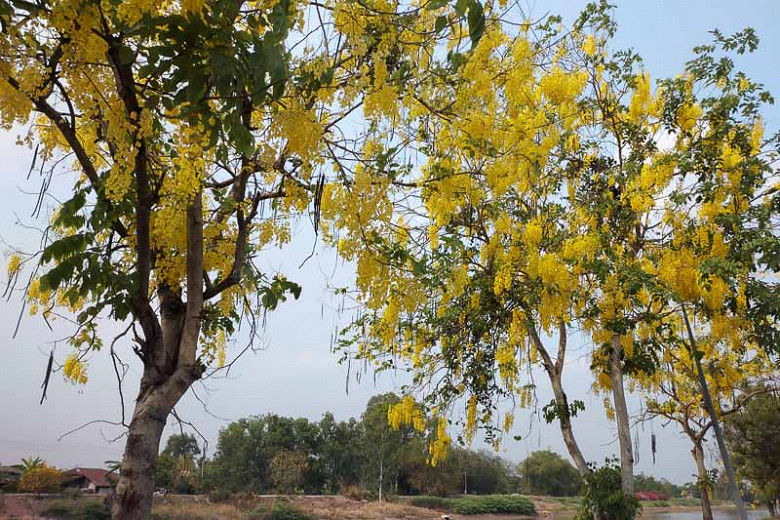Caesalpinia pulcherrima (Red Bird of Paradise)
Fast-growing, Caesalpinia pulcherrima (Red Bird of Paradise) is an upright evergreen thorny shrub or small tree boasting showy clusters of up to 40 brilliant gold-to-orange flowers from spring to fall (year-round in tropical climates). Borne at the branch tips, the bowl-shaped flowers, 2 in. across (5 cm), feature long red stamens that create an exotic look. Attractive to hummingbirds, they give way to flat seed pods, up to 4 in. long (10 cm), containing dark brown to black seeds. These pods dry and split open, releasing the dark brown seeds, sometimes explosively. The foliage of feathery green leaves is evergreen in frost-free climates. Red Bird of Paradise is a fine choice for xeriscaping and makes a wonderful large accent shrub. It has sharp thorns along its stems and forms an effective thorny barrier.
- Recipient of the prestigious Award of Garden Merit of the Royal Horticultural Society.
- Grows up to 10-20 ft. tall (3-6 m) and 6-12 ft. wide (2-4 m).
- Performs best in full sun in moist, well-drained soils. In hot climates it is tolerant of dry areas where it can be grown out of doors, providing a dense thorny barrier. Established plants have good drought tolerance.
- A charming addition to beds and borders, wall-side borders, hedges, city gardens, Mediterranean gardens, or containers. Excellent cut flowers.
- Prune to shape as needed.
- Generally trouble-free, but keep an eye out for glasshouse red spider mite, glasshouse whitefly, and mealybugs.
- Propagate by seed or softwood cuttings.
- Toxic to dogs, toxic to cats.
- Native to tropical America.
Requirements
| Hardiness | 9 – 11 |
|---|---|
| Heat Zones | 9 – 11 |
| Climate Zones | 12, 13, 14, 15, 16, 18, 19, 20, 21, 22, 23, H1, H2 |
| Plant Type | Shrubs, Trees |
| Plant Family | Caesalpinia |
| Exposure | Full Sun |
| Season of Interest | Spring (Early,Mid,Late)Summer (Early,Mid,Late)FallWinter |
| Height | 10' – 20' (3m – 6m) |
| Spread | 6' – 12' (180cm – 3.6m) |
| Water Needs | Low |
| Maintenance | Low |
| Soil Type | Chalk, Loam, Sand |
| Soil pH | Acid, Alkaline, Neutral |
| Soil Drainage | Moist but Well-Drained |
| Characteristics | Cut Flowers, Plant of Merit, Showy, Evergreen |
| Tolerance | Drought |
| Attracts | Hummingbirds |
| Garden Uses | Beds and Borders, Hedges and Screens, Patio and Containers, Wall-Side Borders |
| Garden Styles | City and Courtyard, Mediterranean Garden |
